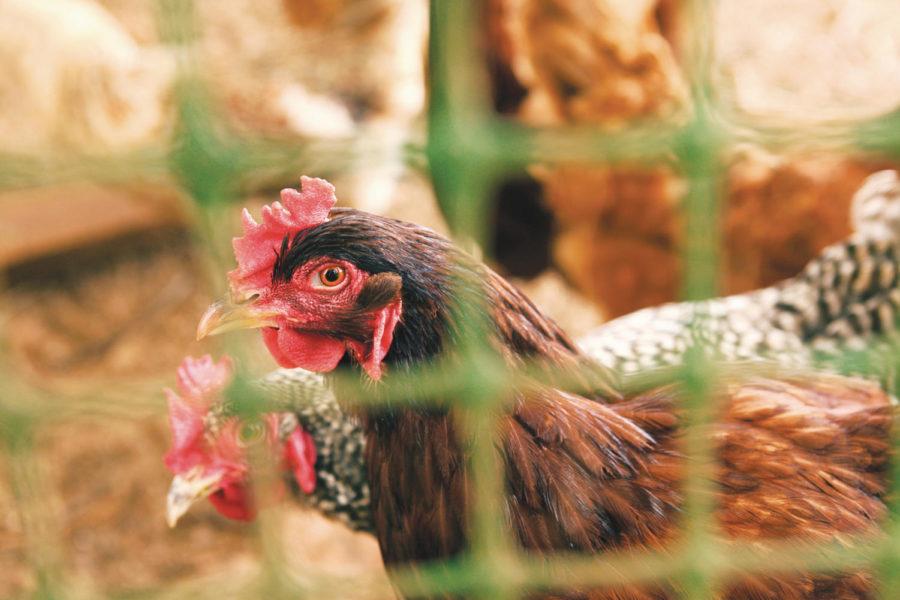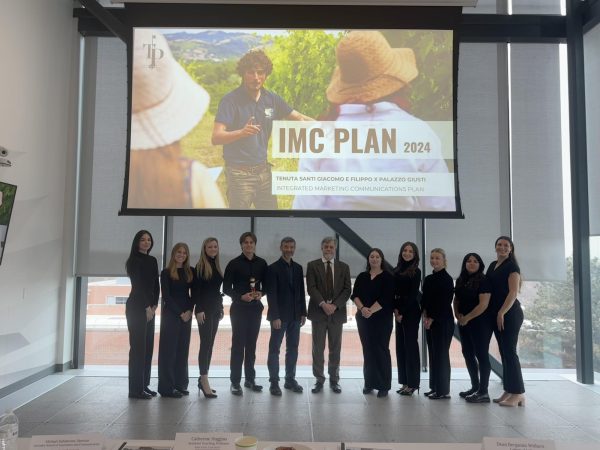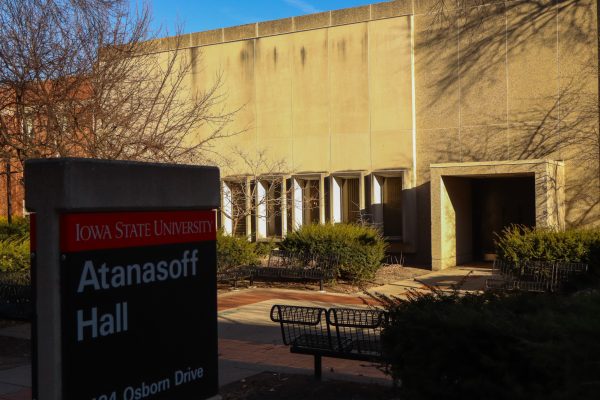Poultry gut health research provides possible solutions to foodborne illnesses
Improving poultry gut health will be essential in preventing salmonella, one of the top foodborne pathogen-induced illnesses in the U.S., according to the CDC.
Melha Mellata, the associate professor of food science and human nutrition and chair of the interdepartmental microbiology graduate program, is taking steps to solve this problem and develop treatments to mitigate bacterial infections in food-producing animals, focusing on chicken gut health.
Nearly 23% of the 1.3 million human infections each year are attributed to poultry consumption, according to the U.S. Department of Agriculture.
Mellata said research needs to be directed toward what the agriculture industry needs, and in this case, it means creating an alternative treatment to antibiotics for poultry.
“To account for the sustainability of this industry, we need to find an alternative to antibiotics to mitigate infection to improve food safety, because most of the bacteria causing human disease are coming from animals and could increase productivity, because if you have healthy animals, you increase productivity,” Mellata said.
Mellata said as more researchers such as herself have studied the gut microbiota, they have learned that there are key microbes that are needed in chickens.
“We are studying the gut microbiota of chickens and we found out that to increase the health of animals, we need to improve the gut microbiota of chickens,” Mellata said.
Mellata said one of her overarching goals is to reduce bacterial infection and increase the growth of animals like chickens. She said this response to consumer demand along with the demand of the agriculture industry.
“They [consumers] have to pay attention to [animal health research] and it’s very important for consumers in general, especially any immunocompromised peoples,” Mellata said.
Mellata said consumers desire a clean product without hormones and antibiotics. She said the absence of these factors is essential for the sales and growth within the poultry industry so it is essential to raise animals without antibiotics and hormones.
“For example, if these products are contaminated with salmonella or other pathogens, they end up in our plates in consumers, and they end up causing disease in humans,” Mellata said.
Mellata said her goal is to reduce infection from the start and avoid any health issues ending up in poultry.
The beginning of Mellata’s research originated with her research in 2020 regarding immunometabolic shifts in the chicken gut using ileal spores.
Mellata said if the ileal (the small intestine of the chicken) is not healthy, the animal’s overall health may not be ok.
“This is why we are testing their gut because their health [is] involved in the maturation of the gut,” Mellata said.
Mellata said she is trying to develop treatments that have broad protection that not only improves the animal’s health but boosts immunity, adding that it is important to prevent pathogens from getting to the consumers, so these bacteria and these pathogens are removed from the source, and products will be clean.
“Everybody will be a winner, the food industry and the consumers at the end,” Mellata said.
Mellata said although her research is focusing on how the immune system of a chicken works, this research could possibly be applied to other animals in the future.
“The same strategy that we’re using can be applied to other animals like cattle or any food animals,” Mellata said. “The bacteria that we use in our treatment, they are specific to poultry, but the strategy is the same.”
Mellata said she is doing research on how to mitigate the antimicrobial resistance in food animals like chickens which everyone, including the consumer, can benefit from.
Mellata said her biggest challenge so far has been maintaining sustainability within the research as many materials and obtaining the funding needed which is expensive.
Mellata and her team hope to turn their discovery into a commercial probiotic with a patent from the ISU Research Foundation. They hope to create a powder that can be incorporated into the animal’s food or mixed with water within the first 24 hours of the chick hatching.
Jared Jochum, a graduate student and researcher in food science and human nutrition working with Mellata, said the main challenge so far has been the project’s many tasks and multitasking in each aspect of the research.
“Research right now is very involved with not only just lab work, but we work with area farmers kind of in collaboration to collect samples from living birds that we can use, and we do many different things in the lab where we work on microbiology, immunology– looking at animal health,” Jochum said.
Jochum said before joining the research team, he had never seen a chicken in person and the experience was unique.
“Coming into contact with agriculture is very different from anything I’ve ever done in the past,” Jochum said.
Jochum said he was eager to work in Mellata’s lab and was intrigued by the work being done on host-bacteria interaction.
“When we started working with chickens, the diversity of the research was perfect,” Jochum said.
Your donation will support the student journalists of the Iowa State Daily. Your contribution will allow us to purchase equipment, send our student journalists to conferences and off-set their cost of living so they can continue to do best-in-the-nation work at the Iowa State Daily.











